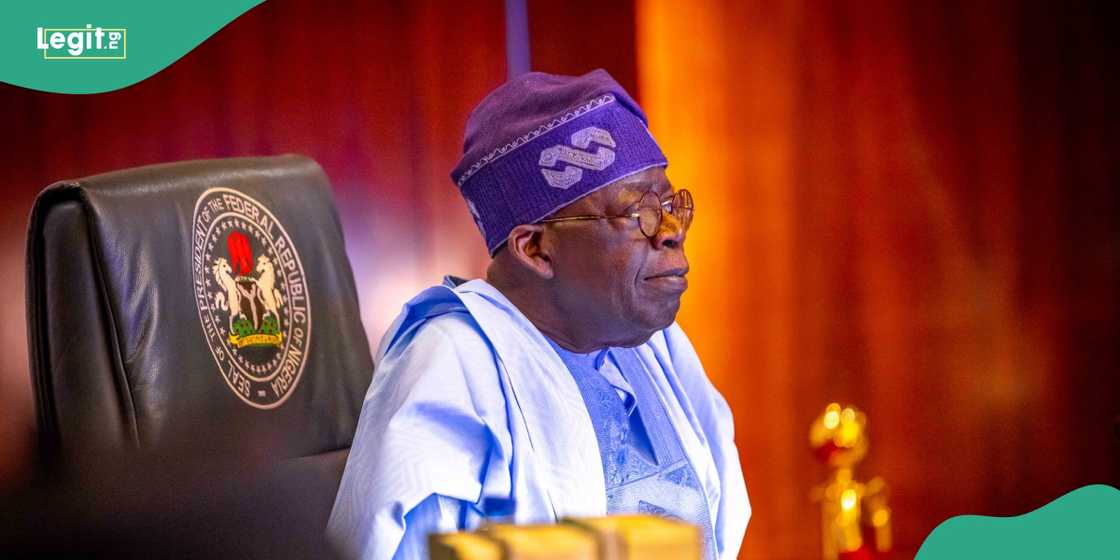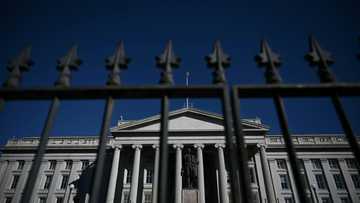Nigeria’s Fiscal Deficit Widens as FG Spends More Than Revenue
- The Budget Office of the Federation finally released the long-awaited Q4 2024 Budget Implementation Report (BIR)
- Data from the report showed that Nigeria recorded a fiscal deficit of N13.5 trillion in 2024, exceeding the Fiscal Responsibility Act’s 3% limit
- The report revealed that oil revenue grew 168% year-on-year but still fell short of budget targets
Legit.ng journalist Dave Ibemere has over a decade of experience in business journalism, with in-depth knowledge of the Nigerian economy, stocks, and general market trends.
Data from the Budget Office of the Federation (BoF) has revealed that Nigeria’s fiscal deficit have increased to N13.5 trillion in 2024.
This was disclosed in its Q4 2024 Budget Implementation Report (BIR) released over the weekend.

Source: Twitter
Breakdown from Budget Office's report
According to data from the report, the federal government’s retained revenue for full year revenue in 2024 stood at N21.0 trillion, 68% year-on-year.
However, it was still N4.9 trillion below the budget benchmark of N25.9 trillion.

Read also
Analysts predict naira to appreciate to N1,400/$ before December as inflation drops, reserves rise
While, Aggregate expenditure stood at N34.5 trillion, almost in line with the N35.1 trillion expenditure budget for the year, resulting in a fiscal deficit of N13.5 trillion.
The means that the federal government’s spending is more than its revenue in 2024
Fiscal responsibilities
Proshare reports that with the full-year shortfall of N13.5 trillion, represents a 3.7% of GDP.
The Fiscal Responsibility Act (FRA) of 2007 for Nigeria noted that government expenditure should not exceed estimated aggregate revenue plus a deficit of up to 3% of the estimated Gross Domestic Product (GDP).
With 3.7% fiscal deficit for 2024 has now exceeded the 3% threshold set by the Fiscal Responsibility Act.
Other key insight from Budget Office's report
Debt service costs consumed the largest portion at N12.6 trillion about 37% of total spending, a 48% year-on-year increase.
This put the debt-service-to-revenue ratio at 60.2%, slightly better than 68.5% recorded in 2023.
Based on figures from the report, oil revenue rose by 168% year-on-year to N6.3 trillion, but still below the N8.2 trillion budget target.
While non-oil revenue, however, surged 51% to N5 trillion, surpassing the budget benchmark of N3.6 trillion by 40%.
Company income tax climbed 35% to N2.6 trillion, while customs duties increased by 74% to N1.4 trillion.

Source: Getty Images
The government’s share of Value Added Tax (VAT) rose 82% to N869 billion, and independent revenue nearly doubled to N3.6 trillion.
Capital expenditure accounted for N11.6 trillion (34%), while non-debt recurrent expenditure stood at N8.5 trillion (25%).
Insight on crude oil sale in 2024
Earlier, Legit.ng reported that the National Bureau of Statistics (NBS) revealed that Nigeria sold N55.28 trillion worth of crude oil in 2024.
This represents a 90.63% increase compared to the N29 trillion sold in 2023.
The bureau reported that Nigeria's highest crude oil sales for the year occurred in the first quarter, with N15.48 trillion worth of crude sold between January and March (Q1).
This was followed by N12.60 trillion in the second quarter (April–June), N13.40 trillion in the third quarter (July–September), and N13.78 trillion in the fourth quarter (October–December).
Proofreading by Funmilayo Aremu, copy editor at Legit.ng.
Source: Legit.ng




